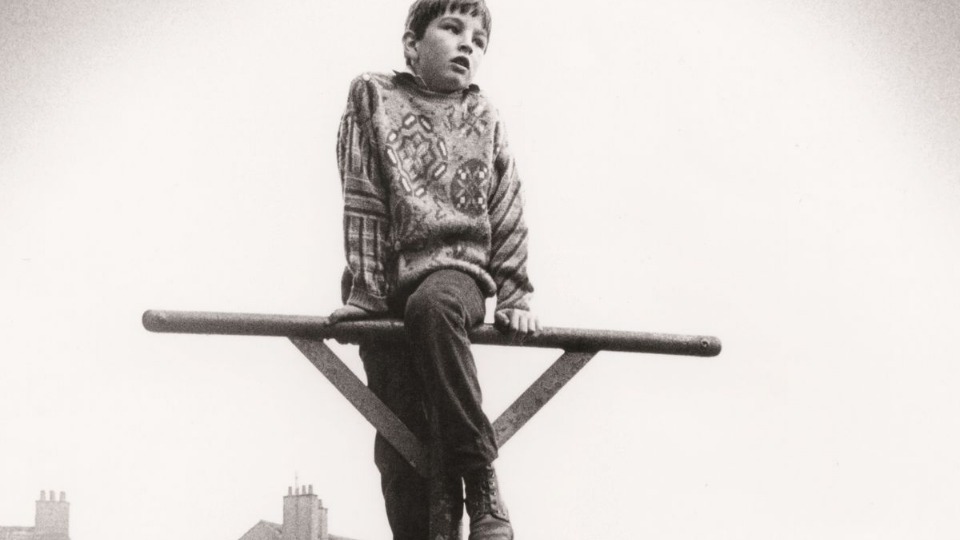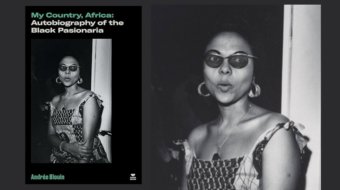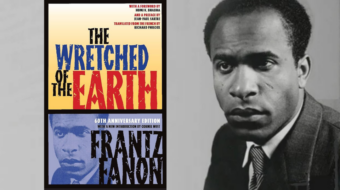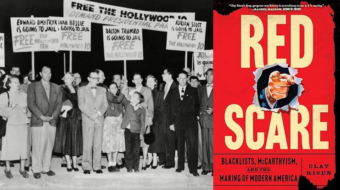
Douglas Stuart won the 2020 Booker prize for his debut novel Shuggie Bain, set in his hometown Glasgow in the 1980s. Like many working-class writers, Stuart found himself doubting the value of his story. “I used to ask myself, ‘What right do I have to write this?’ Shuggie Bain is about a voice from the margins that doesn’t get heard often. … Working-class voices are still struggling for representation in a middle-class industry.”
The bulk of the novel relates the experience of growing up at a time when Thatcherite policies devastated Scotland’s industries, a time characterized by a stark rise in unemployment. The once thriving Scottish steel, car, shipbuilding, mining, and engineering industries were destroyed, and with them the communities that worked in them.
“No. No more school. We need the money.”
“Aye. The state of the day’s world ye’ll be supporting any man ye do get.”
The women all had men at home. Men rotting into the settee for want of decent work.
Few women work either. They buy items they cannot afford from the Freemans catalog and find themselves ever deeper in debt, with large families and the last holiday most of them had seen was a stay on the Stobhill maternity ward.

Nan applied the pressure like she had a thousand times and went about collecting money from all the women and marking it in their books. It would be an eternity to pay off a pair of children’s school trousers or a set of bathroom towels. Five pounds a month would take years to pay off when the interest was added on top. It felt like they were renting their lives. The catalog opened to a new page, and the women started fighting over who wanted what.
The novel portrays this working-class experience through the eyes of Shuggie, in particular growing up with an alcoholic mother, Agnes.
The reader is introduced to the working class circle around Agnes. Her father had been a laborer: These were hands that had loaded grain trucks for twenty years, hands that had laid pungent tarmacadam, hands that had killed Italians in North Africa. He was one of the few who returned—there were many sons from Glasgow, from Inverness and Edinburgh, who had sacrificed and would never be coming home.
Despite their common lot, the working people are shown to be divided along denominational lines—Catholic and Protestant—with the same prejudices as across the Irish Sea. Agnes’s first husband and father of her older children was a Catholic workingman, whom she leaves for the sexier Eugene Bain, a Protestant hackney driver, and father of Shuggie. This second husband moves the family out of his in-laws’ council flat and into an equally deprived mining community, before abandoning them. Part of the reason for this is Agnes’s drinking.
The reader gets the close-up view through young Shuggie’s eyes of his mother’s complete unraveling and the suffering it brings to her children. His older siblings initially help protect their mother but ultimately realize that they cannot save her. Her condition thwarts her children’s potential: Shuggie’s schooling and Leek’s artistic talent.
Despite an interlude of hope with the help of the AA, a job, and her children at school and happy, this does not last. Alcoholism and its effect on people and communities is explored in detail from the perspective of a loving and protective child, who observes all the secrecies, shame, and suicidal self-hate that it brings. Agnes is not alone—either with this ravaging illness or in terms of support offered to her by people close to her. The addiction, it seems, is endemic in this community and an expression of its own destruction.
Douglas Stuart knows intimately what he writes about. His mother struggled with alcoholism and died when the author was 16. And while what we read is fiction, it is deeply informed by Stuart’s own childhood. He comes from “a long and proud tradition of slaters and joiners and tradespeople.” He takes pride in his class and says that despite an absence of books in his childhood and youth, “it didn’t make us any less caring, any less empathetic.” Stuart writes this into the book. There is a very strong sense of solidarity and community. By writing this story, he shows that this community is an important subject of literature and art.
In its 52-year history, Stuart is the second Scottish writer to be awarded the prize. The only other Scot to win it, James Kelman, also a working-class writer, programmatically writes in the idiom of his people. The novel that controversially won him the Booker Prize, was How Late it Was, How Late. This is a stream-of-consciousness narration of an unemployed alcoholic Glaswegian, in and out of jail, battered and blinded, disregarded by society, and yet somehow a resilient survivor.
For Stuart, Kelman’s Booker win was seminal. It showed him that the Glasgow vernacular had a rightful place in literature, that literature was not the preserve of the middle and upper classes, but must be owned by the working class as one way of telling its story.
“It changed everything in literature for me,” he says. “Not only was it about working-class people, but it was also written in a broad Scots dialect. That’s how people around me talked, but you rarely see that in literature, rarely see it celebrated. It was an affirming moment for me.”
While neither Kelman’s nor Stuart’s novels indicate characters and ways of combatting the outrageous economic and cultural deprivation of the Scottish working class, they nevertheless describe this class with insight and regard, indeed love, as a class that is entitled to their equal share in the nation’s wealth.
Shuggie Bain
Douglas Stuart
Grove Press, New York, 2020










